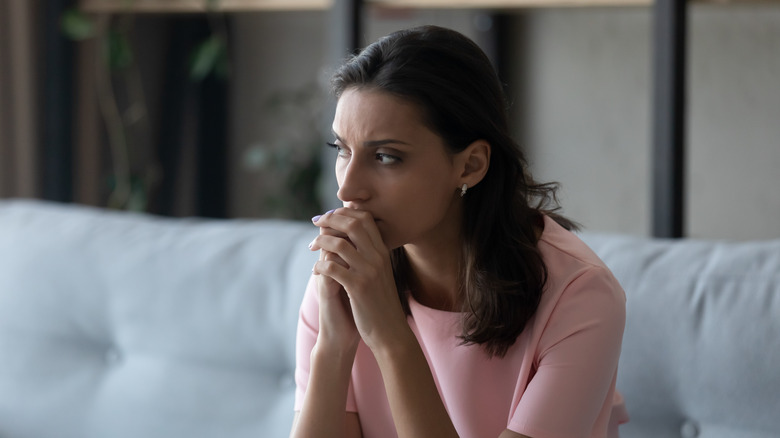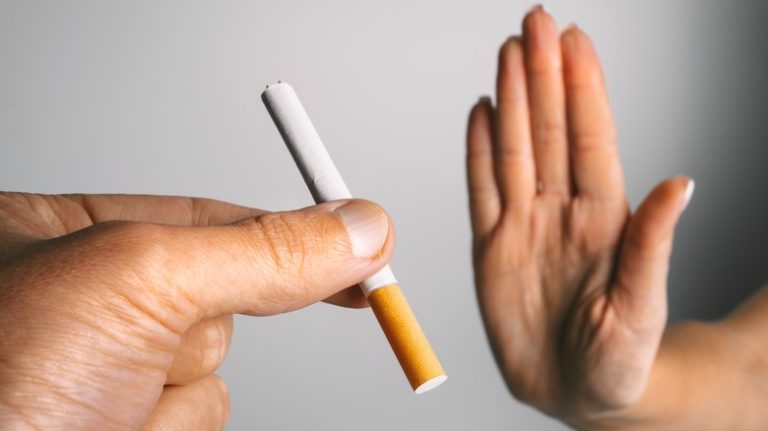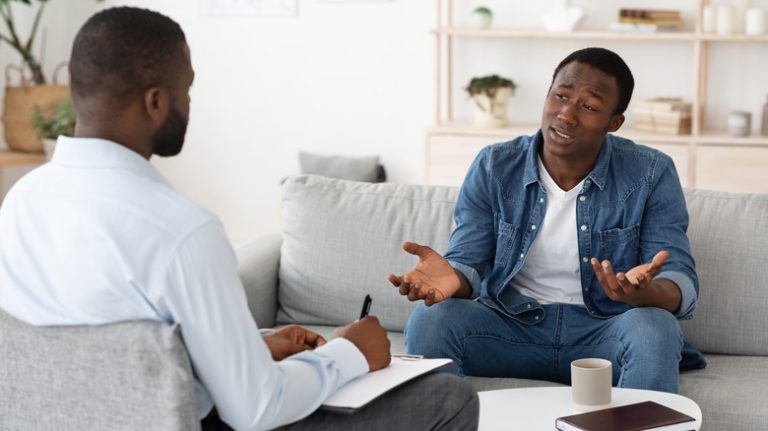Our cell phones have become an extension of ourselves, and it’s not difficult to see why. Everything from social media, connectivity with friends, news, and our weekly calendars to banking, online therapists, flashlights, alarm clocks, and step calculators are on our devices. Without them, many of us are lost.
While some amount of distress is probably common among people when they misplace their phones, if you experience deeply anxious and distressing emotions when you’re separated from yours, it might mean that you have nomophobia. An abbreviated version of the longer term “no mobile phone phobia,” nomophobia isn’t yet a clinically recognized condition, but that doesn’t mean it hasn’t been studied by researchers and health professionals alike.
The first time the term was used was in a 2008 U.K. study commissioned by the Post Office, which found that as many as 53% of U.K. cell phone users experienced feelings of anxiousness when they couldn’t get connectivity or lost their phones. As licensed clinical psychologist Blair Steel told CNBC Make It, certain people might be more at risk of developing nomophobia — for example, those with anxiety and other mental health issues, low self-worth, and who feel lonely. Symptoms of nomophobia include changes in your breathing, sweating, disorientation, and irregular heart rate. Per most health experts, it’s certainly one of those sneaky ways your cell phone is hurting your health.
People around the world experience nomophobia
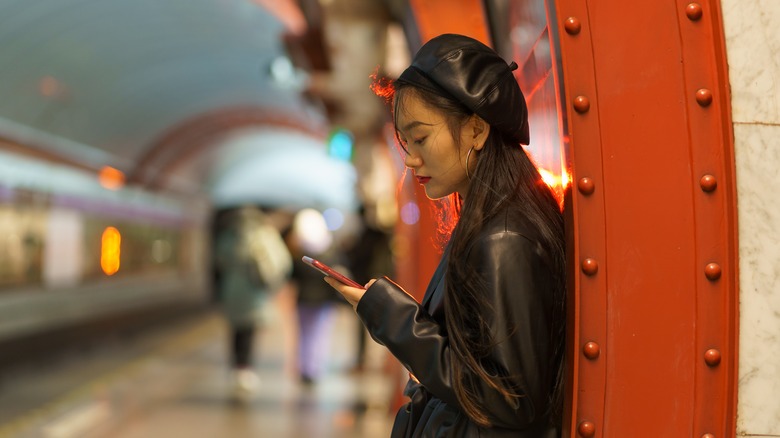
If you thought nomophobia was a Western problem, you may want to think again. A 2024/ 2024 study done across five Arab countries found that anxiety while being separated from their phone was a common problem among university students in the Middle East. This research also puts the spotlight on how teenagers might be particularly susceptible to developing nomophobia.
“This is the most tribal generation of young people. Adolescents want to be with their friends on a 24-hour basis,” shared Melbourne-based adolescent psychologist Michael Carr-Gregg, per CNN Business. The psychologist added that cell phones have replaced the traditional stuffed animal, so to speak, with some of his clients going to sleep with their phones in bed. “While teddy doesn’t communicate, the phone does.”
Yet another study published in the Indian Journal of Community Medicine involving medical college students found that as many as one in five students were nomophobic. Study co-author and head of the Indian Journal of Community Medicine Dr. Sanjay Dixit told CNN Business that this is not surprising considering the increase in cell phone usage in India. “Analysis shows that about 45% of the Indian population, not just medical students, is nomophobic,” shared Dixit. While it might not be possible to completely cut off from the connectivity that a phone provides, having a debilitating attachment to your cell phone is never healthy and needs to be addressed.
You may have to start by facing your fears
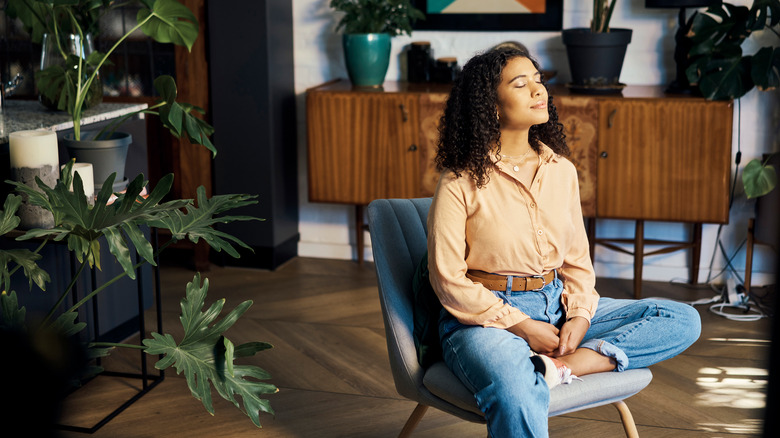
Part of the reason why nomophobia develops is someone’s fear of missing out on texts, calls, or other notifications that might pop up on the device. For some, it might even be the fear of losing internet connectivity or their battery dying on them. Facing these fears with exposure therapy might be a good place to start, suggests Verywell Mind.
Force yourself to sit quietly in a room without your phone for a few minutes every day and practice mindful exercises like breathing in and out or even meditating while you’re doing so. If the alerts are bothering you, you can even switch off your cell phone. You should also gradually increase the time you spend away from your phone. You can start by leaving it at home when you take your dog out for a walk or meet with a friend for coffee. Clinical psychologists Leno and Steel recommendfinding alternative tools that would fulfill the roles your phone does — examples include buying a traditional alarm clock or purchasing a calendar or physical planner. Re-learning and establishing face-to-face interactions with your friends might also help. These are some ways to reduce your anxiety without medication.
If these aren’t working for you, you may want to see a therapist who could suggest cognitive-behavioral therapy (CBT) or medication. The important thing is to be aware of just how crippling your anxious thoughts are and find healthier ways of maintaining a relationship with your device.

